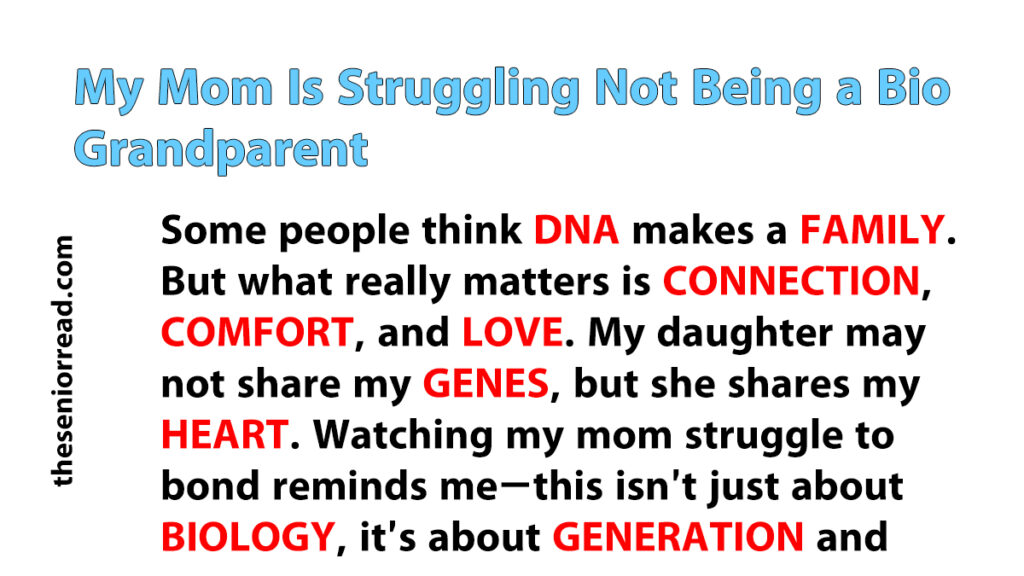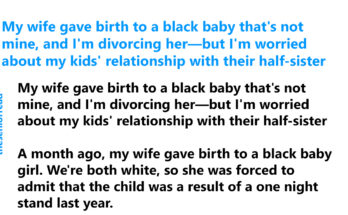We welcomed our children into the world through IVF, using an egg donor and my partner’s sperm. It was the only path available to us—my ovaries stopped functioning before I turned 14, and I don’t have siblings, so there was no biological route through me.

My bond with my daughter is deep and unwavering. Her DNA doesn’t mirror mine, but that’s never mattered to me. She is my child in every way that counts, and I feel profoundly connected to her.
My mother, however, has struggled with this reality. She’s making an effort, but I can see how hard it is for her to fully embrace her granddaughter. She often gets irritated by typical toddler behavior—needing constant attention, being clingy, cranky, or unable to play alone.
I’ve started to wonder: is this kind of emotional distance common among grandparents who aren’t biologically related? And more importantly, is there anything she can do to build a stronger bond with my daughter?
Recently, I tried to explain to my mom that young children need affection to feel safe and loved. I mentioned how ideal it would be if my daughter could receive a hug and kiss before heading off to daycare or staying with a grandparent.
Her response caught me off guard. “Why does she need a hug and a kiss?” she asked. I replied, “Because that’s how children feel secure and connected.” She paused and said, “Oh. I never had to give you hugs or kisses for you to be okay.”
That moment stayed with me. It wasn’t just about biology—it was about generational norms. My mom grew up in a time when emotional expression wasn’t emphasized, and that shaped how she parented.
I don’t hold it against her, but I do wish she could see how different things are now. Children thrive on warmth and reassurance. My daughter isn’t being difficult—she’s just being a toddler.
I hope, with time and gentle guidance, my mom can learn to connect with her granddaughter in a way that feels meaningful to both of them.

